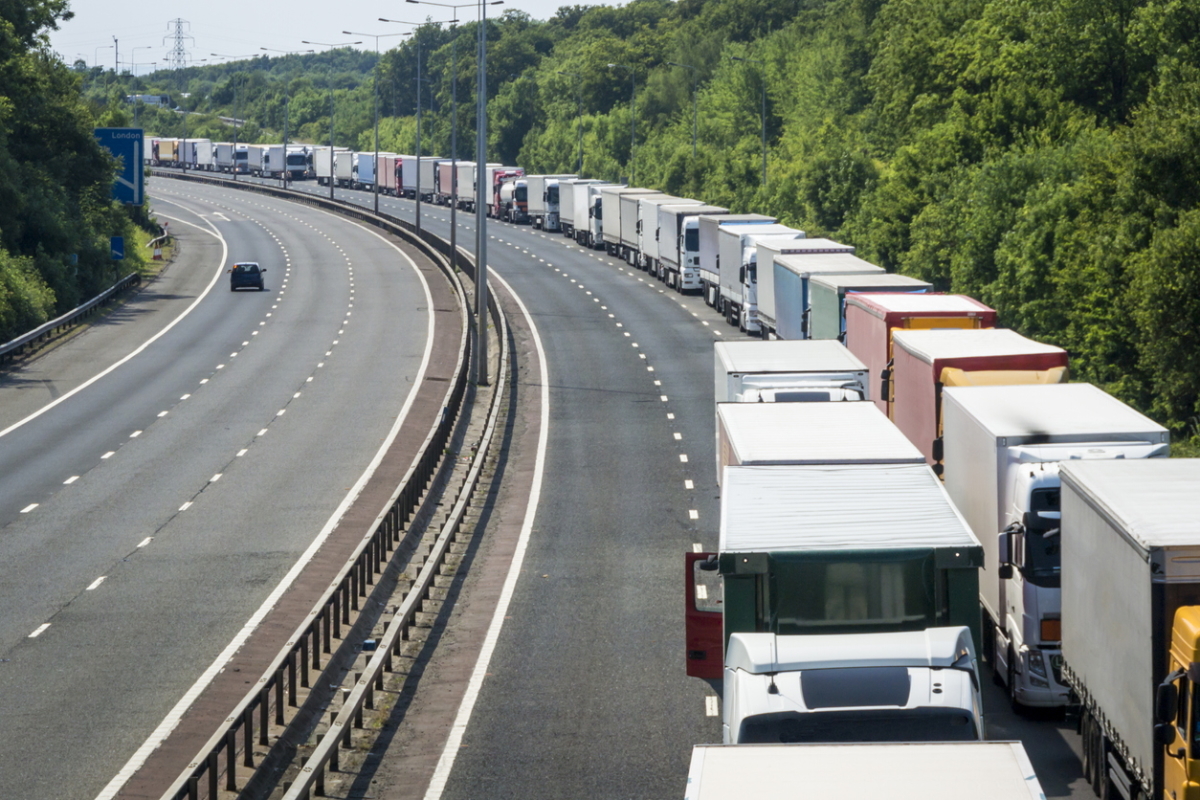Managing supply chain volatility

Duncan Angove at Blue Yonder discusses how retailers can best prepare their supply chain in time of disruption.
What are the main concerns businesses are facing around the supply chain right now?
It’s not surprising to know that supply chains are top of mind right now in many businesses. The COVID-19 pandemic made supply chain central to the national infrastructure, and this focus hasn’t changed.
When supply chains go down, they bring nations, businesses and commerce grinding to a halt. The importance of the supply chain has never been so public, and now it’s playing out on a global scale.
Right now, there are various challenges to unpack from geopolitics driving re-shore manufacturing and causing considerable disruption to supply, to changing consumer behaviour which is forcing retailers to re-think strategies.
What’s more, the rise of e-commerce is changing the way customers are served and bringing to the forefront questions about the sustainability of the supply chain lifecycle.
This means that retailers are being forced to adapt to demand from consumers, at pace. And the concern is how to best manage disruption and fulfil this demand through an efficient supply chain. We’re really experiencing a Zeitgeist.
Ultimately, when it comes to managing their supply chains, retailers must get ahead by using a purpose-driven narrative, to make the supply chain more efficient, sustainable and customer-centric.
There have been dramatic shifts in consumer behaviour over the past few years, but how do retailers cater to these changing demands?
Retailers have needed to react at pace in order to put the customer first. Those organisations that utilised omni-channel during the pandemic were able to scale their online businesses and thrive during lockdowns. The importance of utilising different channels to meet customer demand to maintain business continuity when supply lines were affected became evident.
Now, consumer demand continues to shift and retailers need to continue to focus on adapting quickly. Retailers are having to navigate red-tape, pandemic and political disruption, and even delays caused by the weather, while providing the right stock, in the right location, at the right time. Doing this effectively is critical to remaining competitive. This is where technology comes in.
An effective commerce offering, which supports retailers to enhance their multi-channel offering, increase visibility, and improve planning is key. The ability to leverage common components within existing business architecture will be critical for retailers looking to navigate further disruption.
Building around or on top of existing systems can provide the flexibility that is essential for responding to demand at pace.
If supply chain management software is critical to managing disruption, what is holding retailers back from updating legacy systems?
Despite the fact that technological investment is becoming increasingly critical to supply chain management, the adoption of artificial intelligence (AI) and machine learning (ML) technologies remains low. For many, this is due to unfounded concerns around control.
Investment decisions are never easy, and a focus for many today is on short-term cost reduction due to inflationary pressures; however, the supply chain must remain a priority, not only to help deliver some of those cost reductions through better efficiency and availability, but also because it is becoming a strategic differentiator.
The growth of fast delivery, the intense competition from many avenues, and the increasingly complex omni-commerce world continue to cause obstacles for retailers. The only way to overcome this and satisfy customer demand is through investment in your systems, people and process.
Those who are not choosing to adopt this sort of technology into their operations are allowing their competitors to move ahead. They are being provided with the answers and optimum responses to today’s supply chain challenges.
With sustainability becoming increasingly important, how can retailers incorporate sustainable practices into their supply chains?
Sustainability is a huge priority for retailers. While it’s driven in part by consumer demand, businesses are aware of their need to have more efficient and effective processes – which comes hand-in-hand with sustainability.
Retailers with the technology to predict what, when, where, and how their consumers want a product or service – and orchestrate their global supply chain to make it happen – not only deliver the best experience but in doing it right, help make the world a better place.
They are using technology effectively to be more efficient, reduce the impacts of climate change and improve access to goods and services – truly bringing the world closer and creating opportunities for the underrepresented parts of the world through smart commerce.
Utilising AI and ML will give organisations the power to reduce their supply chains’ environmental impact, while improving efficiency and customer experience and most importantly, remaining profitable. For example, AI can help retailers reduce food waste through accurate forecasts, and IoT technologies can enable better energy management, all without disrupting the customer experience.
What do you predict for the long-term future of the supply chain?
With uncertainties set to continue, the supply chain will become even more integral to business operations. Supply chain technology will shape strategy, and businesses will want to enhance efficiencies. The next decade of the supply chain will be marked by accelerated growth, even more so than the previous 30 years.
And technology will continue to play a huge part. As software, edge technologies, automation, 5G, and cloud computing continues to develop, it will reshape our experience with brands, products, and services. Consumer demand will change, and with it, so will the supply chain.
Companies that invest in technology that generates value and focuses on increasing efficiency will support them to navigate disruption, remain competitive and implement a predictive supply chain in this unpredictable world.
Duncan Angove is CEO of Blue Yonder
Main image courtesy of iStockPhoto.com

Business Reporter Team
Most Viewed
Winston House, 3rd Floor, Units 306-309, 2-4 Dollis Park, London, N3 1HF
23-29 Hendon Lane, London, N3 1RT
020 8349 4363
© 2024, Lyonsdown Limited. Business Reporter® is a registered trademark of Lyonsdown Ltd. VAT registration number: 830519543





